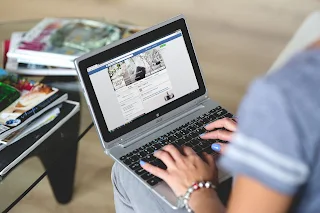
A free facial cognizance device that approves human beings to discover snap shots of themselves or others from round the net has drawn criticism from privateers campaigners.
PimEyes describes itself as a privateers device to assist stop misuse of images.
But Big Brother Watch stated it should "enable nation surveillance, business monitoring and even stalking on a scale until now unimaginable".
It comes as Amazon decides to pause its use of facial awareness for a year.
Polish internet site PimEyes used to be set up in 2017 as a interest project, and commercialized final year. It presently has 6,000 customers signed up.
Attention was once drawn to it following an article posted on Medium.
The internet site approves humans to add any image for free and it will then discover matching pics from round the web, drawing on publicly on hand websites such as Tumbler , information stores and blogs.
Silkie Carlo, director of Big Brother Watch , "To see this effective surveillance tech marketed to people is chilling. It's ripe for stalking and places female and teens at unheard of risk."
In response, PimEyes said: "Our privateers coverage prevents human beings from the use of our device for this case. Every device ought to be used in the incorrect way."
it categorically did no longer use snap shots scraped from social media,
"If you observed faces which have been posted solely on Facebook that ability that anyone else has posted it someplace else. We crawl solely web sites that agree in their regulations for crawling," it stated in an email.
Using social media pics has bought facial consciousness association Clear view AI into trouble. It gathered extra than three billion images from Facebook, Twitter and YouTube, which are used by using the FBI, the Department of Homeland Security and 600 different regulation enforcement businesses round the world to discover suspects.
All three social networks have requested it to cease doing so.
PimEyes affords a top rate carrier that lets in human beings to enter up to 25 photos of extraordinary humans and get indicators every time new pix are uploaded online. Currently it has 350 lively customers of this service.
The premise of the internet site was once to assist people "fight for their personal on-line privacy", such as discovering faux profiles, leaked photographs and unauthorized image usage.
It recounted that it did work with police forces, feeding into Paliscope, a software program device used by way of regulation enforcement agents.
But it has eliminated a reference on its internet site about looking the darkish net for the police.
According to PimEye's website, photographs uploaded to the website online are "never saved or indexed". Instead it says it makes use of a fingerprint of a face - the foremost elements - which is encoded and quickly saved on its servers.
Amazon ban
Facial attention science has grow to be increasingly more controversial as greater police forces round the world undertake the tools.
Several research query how correct the technological know-how is, suggesting that it performs specially poorly when figuring out black people.
In the wake of protests over the killing of George Floyd and calls for police reform, IBM and Amazon have each stopped the use of facial attention technology.
In Amazon's case, police use of its Rekognition software program has been paused for a yr to permit the US authorities to determine how it needs the science to be used in future.






